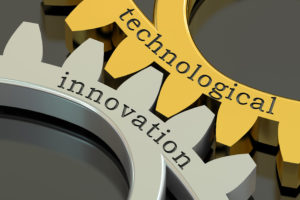
Approximately 90% of all households in the United States use wireless services and an estimated $1.1 trillion is spent on wireless communications worldwide. But just three decades ago, none of the wireless technology we know today existed.
What started as a simple business need – wireless cash registers – became IEEE 802.11, the international standard commonly known as Wi-Fi®, established to get manufacturers and consumers involved in sharing compatible products.
Wi-Fi continues to push the boundaries of innovation decades after its inception. Think of all the devices you use every day that require Wi-Fi technology, from smart phones to solar panels, GPS navigation systems and more. With the addition of Wake-Up Radio, the groundbreaking new technology developed by the IEEE 802.11ba standards task group, wireless devices will have significantly improved battery life, driving innovation and exciting new applications.
“In a nutshell, standards fuel the development and implementation of technologies that influence and transform the way we live, work and communicate,” says Dr. Konstantinos Karachalios, Managing Director of the IEEE Standards Association. “Wi-Fi already underpins wireless networking applications around the world, such as wireless access to the internet from our offices and homes, but also from airports, hotels, restaurants, trains and even aircraft – and the number of devices that are connected wirelessly is expanding at a furious pace. The standard’s relevance has grown further with the emergence of new applications, such as smart grids and monitoring technologies in the healthcare industry.”
Beyond Wi-Fi
And Wi-Fi isn’t the only standard that affects our daily lives. Several thousands of standards support ongoing technological innovation and allow products to work seamlessly for consumers around the world.
IEEE’s standards-related activities contribute to innovations that define today’s technologies and future technologies, including creating and connecting smart cities worldwide, addressing electric power systems communications, and enabling secure vehicle-to-vehicle and vehicle-to-infrastructure wireless communications.
Standards Education

Practicing engineers will encounter or use technical standards with great frequency. They’ll need to know about standards in advance of developing new products to ensure that performance, safety, and environmental factors are built in from the start.
This means engineers who understand standards before entering the workforce are more valuable. IEEE resources provide insight into what standards are and how to create them. To learn more about how understanding standards will help new engineers stand out to potential employers, watch Standing Out with Standards: Transition from University.
And be sure to check out Mars Space Colony: A Game of Standardization, an exciting, hands-on, team-building experience that teaches how standards are developed. The game is crafted by experts with 20+ years’ experience in high-stakes, real-world technical standards development.
Resources
Expert Interview: The importance of industry standards. European Patent Office.
(29 Dec 2017). Standing Out with Standards: Transition from University. IEEE Standards University.
(13 Oct 2017). IEEE Standards Fulfill the 2017 World Standards Day Theme: “Standards Make Cities Smarter”. Beyond Standards.
(27 Sept 2016). Standards Education: Strategic Standardization. IEEE Standards University.


No comments yet.